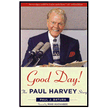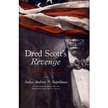Also, be sure to check out my interviews with Lis Wiehl and April Henry.
 | Face of Betrayal, Faith and Consequences Series #1 By Lis Wiehl with April Henry / Thomas Nelson |
 | Face of Betrayal, Faith and Consequences Series #1 By Lis Wiehl with April Henry / Thomas Nelson |
 | Good Day! The Paul Harvey Story By Paul Batura / Regnery Publishing |
Savvy consumers often go online for independent consumer reviews of products and services, scouring through comments from everyday Joes and Janes to help them find a gem or shun a lemon.
What some fail to realize, though, is that such reviews can be tainted: Many bloggers have accepted perks such as free laptops, trips to Europe, $500 gift cards or even thousands of dollars for a 200-word post. Bloggers vary in how they disclose such freebies, if they do so at all.
The practice has grown to the degree that the Federal Trade Commission is paying attention. New guidelines, expected to be approved late this summer with possible modifications, would clarify that the agency can go after bloggers — as well as the companies that compensate them — for any false claims or failure to disclose conflicts of interest.
Sammy Sosa went from a skinny outfielder to a muscular home run hitter, chasing Roger Maris' record and belting more than 600 home runs in his career. The right fielder often credited Flintstone vitamins, in part, for his success.
According to a report published on the New York Times Web site Tuesday, adding credibility to those who've questioned his power surge for years, Sosa benefited from banned substances, not Bam Bam supplements.
Sosa allegedly is among the 104 Major League players who tested positive for performance-enhancing drugs in 2003.
The allegation of the test came from what the Times referred to as "lawyers with knowledge of the drug-testing results from that year." Alex Rodriguez is the only other player whose name has been linked to the positive results in 2003.
 | Dred Scott's Revenge: A Legal History of Race and Freedom in America By Andrew Napolitano / Thomas Nelson |
It's no great surprise to me that there has been such a tremendous rise in the number of families choosing to homeschool. In the nine years we've been homeschooling we've seen exponential growth among our homeschool community.Homeschooling was the choice of families for 2.9 percent of all school-age children in the United States in 2007, involving 1.5 million students. By comparison, in 1999 only 850,000 children were homeschooled. By 2003, that number was up to 1.1 million. This report indicates significant jumps in homeschooling as compared to other educational options. In fact, the report reveals that the actual number of American children whose parents choose homeschooling for at least part of their education exceeds 3 million. According to the report, 1.5 million children are exclusively homeschooled while another 1.5 million are homeschooled for at least part of the school week.
At this point, the picture grows even more interesting. When parents were asked why they chose to homeschool their children, 36 percent cited a desire to provide children specifically religious or moral instruction. After that, 21 percent of parents pointed to concerns about the environment of schools, 17 percent cited dissatisfaction with educational quality in the schools, and 14 percent cited "other reasons." Among those "other reasons" was a concern for more family time together.
Higher numbers of parents with college educations and greater family incomes are now homeschooling. This trend points to the fact that homeschooling is increasingly the option of first choice for many parents. This pattern is also revealed in increasing numbers of college students, primarily young women, who indicate that they desire a college education so that they will be better equipped in years ahead to be homeschooling parents.
But the most crucial points in Dr. Mohler's essay come at the end of the post:
Homeschooling is now a major force in American education, and Christian parents have been in the vanguard of this movement. For many Christian parents, homeschooling represents the fulfillment of the biblical mandate for parents to teach their children. These parents deserve our respect, our support, our advocacy, and our prayers. This movement is a sign of hope on our educational horizon, and a phenomenon that can no longer be dismissed as a fringe movement.
As president of a seminary and college, I can attest to the fact that questions about the educational aptitude of homeschooled students are now settled. These students can hold their own as compared to students from all other educational backgrounds. One other fact speaks loudly to me concerning their education. Most of the homeschooled students I meet at the college and graduate levels indicate an eager determination to homeschool their own children when that time comes.
Education cannot be reduced to statistics, but the trends revealed in this new report from the Department of Education deserve close attention. In our day, education represents a clash of worldviews. Increasingly toxic approaches to education (or what is called education) drive many schools and many school systems. In that light, the fact that so many Christian parents are taking education into their own hands is a sign of hope. As this new report makes clear, we should expect homeschooling to be a growth industry in years ahead.
It's encouraging as a homeschool parent and as a Christian to see a prominent pastor and seminary president embrace the choice that thousands of families make. Homeschooling is not easy and families who make this choice often face derision and ridicule from both friends and families. Those who make the choice to educate their children at home (either full-time or part-time) should be applauded and respected for making this choice. While not everyone will agree that it is the best choice for their own family it's important that those who don't homeschool respect those who do and vice versa.